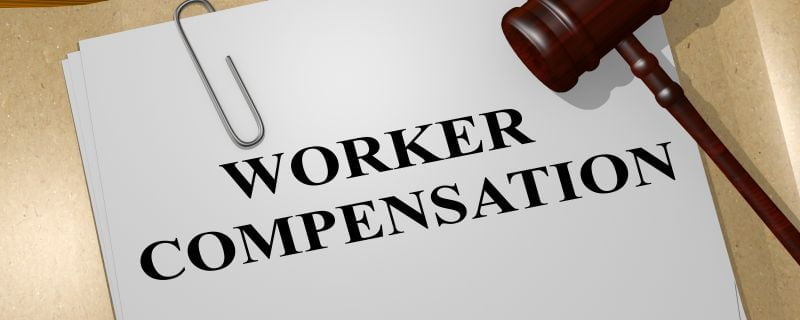That’s where our team of experienced Alpharetta Brain Injury Attorney comes in. We understand the unique difficulties that accompany such injuries and are dedicated to fighting for your rights.

Alpharetta Traumatic brain injury
Alpharetta Traumatic brain injury
Alpharetta Traumatic Brain Injury
Traumatic Brain Injuries: An Overview of the Impact
Traumatic brain injuries Alpharetta Traumatic brain injury can have a profound impact on a person’s life. These injuries occur when a sudden jolt or blow to the head disrupts the normal functioning of the brain. Whether it’s due to a car accident, a slip and fall, or any other incident, TBIs can result in long-term physical, cognitive, and emotional consequences.
Recognizing the Signs and Symptoms of Traumatic Brain Injuries
It’s crucial to recognize the signs and symptoms of a traumatic brain injury to seek immediate medical attention. Symptoms may vary and can include persistent headaches, dizziness, memory problems, mood swings, and difficulty concentrating. By understanding these signs, individuals can take appropriate action and ensure they receive the necessary medical care.
The Vital Role of Alpharetta Traumatic Brain Injury Attorneys
In the aftermath of a traumatic brain injury, it is essential to seek legal representation from experienced Alpharetta traumatic brain injury attorneys. These attorneys specialize in handling TBI cases and understand the unique challenges faced by their clients. They can provide expert guidance, conduct a thorough investigation, and fight for the rights of individuals affected by TBIs.
Pursuing Compensation After a Traumatic Brain Injury in Alpharetta
Individuals who have suffered a traumatic brain injury in Alpharetta have the right to pursue compensation for their damages. This may include medical expenses, rehabilitation costs, lost wages, pain and suffering, and more. With the help of skilled attorneys, victims can navigate the legal process and ensure their rights are protected.
Legal Steps to Take After a TBI: Guidance from Attorneys
Navigating the legal process after a traumatic brain injury can be complex and overwhelming. Attorneys specializing in TBIs can provide valuable guidance on the necessary legal steps to take. From filing a claim to negotiating with insurance companies, these attorneys will advocate for their clients and fight for the compensation they deserve.
Documenting Your Case: Essential Considerations for TBI Claims
In TBI claims, documenting the case meticulously is crucial. Attorneys play a vital role in gathering the necessary evidence, including medical records, expert opinions, witness statements, and more. By thoroughly documenting the case, attorneys can build a strong foundation for pursuing a successful TBI claim.
Finding the Right Alpharetta Traumatic Brain Injury Attorney for Your Recovery
Choosing the right Alpharetta traumatic brain injury attorney is essential for a successful recovery. It’s crucial to find an attorney with a proven track record in TBI cases and a deep understanding of the legal complexities involved. With the right attorney by their side, individuals can focus on their recovery while their legal rights are diligently protected.
Alpharetta Traumatic brain injury
At Bobe and Snell LLC, our experienced team of lawyers is dedicated to fighting for your rights in traumatic brain injury cases. We understand the unique difficulties that accompany such injuries and will guide you through the legal process with compassion and expertise. Contact us today for a free consultation and let us help you on the path to recovery.
Our team of experienced lawyers fully understands the unique difficulties that accompany such injuries and is dedicated to fighting for your rights.
We will conduct a thorough investigation of your case, negotiate with insurance companies, and navigate the intricate legal process on your behalf, allowing you to concentrate on your recovery.
Bobe & Snell, LLC are experts in workers’ compensation law and are located in Alpharetta, GA. Other areas we cover include: Atlanta, Sandy Springs, Roswell, Alpharetta, John’s Creek, Milton, Woodstock, Canton, Acworth, Marietta, Cumming, Lawrenceville, Duluth, Fulton County, Forsyth County, Cherokee County, Gwinnett County, Cobb County, Dekalb County. wiki
Alpharetta Traumatic brain injury
Additional Articles
Alpharetta Brain Injury Attorney
Work-related Injury Lawyer
That’s where a work-related injury lawyer comes in. In this blog post, we will explore the crucial role of a work-related injury lawyer and how they can assist you in your time of need.
Alpharetta Traumatic brain injury
Whether it’s due to a car accident, a slip and fall, or any other incident, Alpharetta Traumatic brain injury can result in long-term physical, cognitive, and emotional consequences.
Alpharetta Workplace Accident lawyer
Our dedicated team of experienced Alpharetta Workplace Accident Lawyers are committed to fighting for your rights and helping you
Alpharetta Brain Injury Attorney
That’s where our team of experienced Alpharetta Brain Injury Attorney comes in. We understand the unique difficulties that accompany such injuries and are dedicated to fighting for your rights.
Repetitive Motion Injury Claims
To effectively navigate the Repetitive Motion Injury Claims process, it is essential to recognize the signs and symptoms of these injuries. Our experienced team of lawyers understands the unique difficulties that accompany such injuries and is dedicated to fighting for your rights.
Alpharetta Traumatic brain injury
Whether it’s due to a car accident, a slip and fall, or any other incident, Alpharetta Traumatic brain injury can result in long-term physical, cognitive, and emotional consequences.
Repetitive Motion Injury Lawyer
A repetitive motion injury lawyer is dedicated to understanding the unique challenges associated with these types of injuries and fighting for the compensation you deserve. At Bobe and Snell, LLC, our experienced team of lawyers is here to provide the guidance and support you need during this difficult time.
What Are Repetitive Strain Injuries?
Under state workers’ comp systems, RSIs go by different names, such as repetitive stress injuries, overuse injuries, repetitive trauma injuries, or cumulative trauma (a larger category that includes other injuries that develop over time, like hearing loss from...








